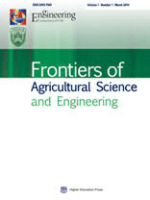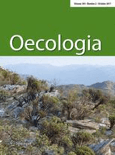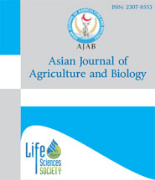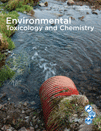
JOURNAL OF ENVIRONMENTAL BIOLOGY
Scope & Guideline
Exploring the Nexus of Nature and Science
Introduction
Aims and Scopes
- Ecological Research and Conservation:
The journal publishes studies that explore biodiversity, conservation strategies, and ecosystem dynamics. This includes research on habitat alteration, species interactions, and the implications of human activities on natural environments. - Environmental Pollution and Toxicology:
Research focusing on the sources, effects, and mitigation strategies of environmental pollutants, including heavy metals, plastics, and agrochemicals. This area encompasses studies on bioaccumulation, toxicity assessments, and the ecological consequences of chemical exposure. - Agricultural and Aquatic Systems:
The journal covers agricultural practices, pest management, and aquaculture, emphasizing sustainable practices and innovation in crop and fish production systems. This includes studies on nutrient management, biopesticides, and integrated farming systems. - Biotechnology and Bioremediation:
Innovative research utilizing biotechnological approaches for environmental remediation and enhancement. This includes studies on microbial degradation of pollutants, phytoremediation techniques, and the development of bio-based solutions for environmental challenges. - Climate Change and Environmental Adaptation:
The journal addresses the impacts of climate change on biological systems, exploring adaptation strategies and resilience mechanisms in flora and fauna. This includes research on phenological changes, species distribution models, and ecosystem responses to climatic stressors.
Trending and Emerging
- Microplastic Pollution Research:
There is a growing emphasis on the study of microplastics and their ecological impacts, including bioaccumulation in aquatic systems and potential health risks to wildlife and humans. This emerging theme is crucial given the increasing prevalence of plastic pollution. - Climate Change Adaptation Strategies:
Research focusing on adaptive strategies for ecosystems and species in response to climate change is gaining momentum. This includes studies on resilience, genetic adaptation, and management practices aimed at mitigating climate impacts. - Sustainable Agricultural Practices:
The journal is increasingly publishing studies on sustainable agriculture, encompassing organic farming, agroecology, and integrated pest management. This trend reflects a global shift towards more environmentally friendly agricultural practices. - Bioinformatics and Genomic Approaches:
The integration of bioinformatics and genomic techniques in environmental biology is on the rise. This includes studies utilizing molecular markers for biodiversity assessments and the application of genomic data in conservation biology. - Innovative Waste Management Solutions:
Research focused on innovative approaches to waste management, including bioremediation and the use of waste materials for sustainable practices, is emerging as a significant theme, highlighting the need for effective solutions to waste-related challenges.
Declining or Waning
- Traditional Crop Breeding Techniques:
Research focused on conventional breeding methods for crop improvement has decreased, possibly due to the rise of genetic engineering and molecular techniques that offer more precise and rapid advancements in crop science. - Invasive Species Management:
While still relevant, the frequency of studies specifically addressing invasive species management has diminished. This decline may be attributed to the increasing focus on broader ecological impacts and integrated approaches rather than isolated species management. - Historical Ecology Studies:
Research exploring historical ecological baselines and changes over time has become less common. This may indicate a shift towards more immediate environmental issues and applied research rather than retrospective studies. - Plant Physiology in Environmental Contexts:
The exploration of plant physiological responses to environmental stressors appears to be waning, potentially overshadowed by more integrative studies that combine physiological data with ecological implications.
Similar Journals

Frontiers of Agricultural Science and Engineering
Pioneering research at the forefront of agricultural sciences.Frontiers of Agricultural Science and Engineering, published by HIGHER EDUCATION PRESS, is a distinguished open-access journal established in 2014, dedicated to advancing research across the fields of agricultural and biological sciences, biotechnology, and veterinary studies. With an impressive Q1 ranking in both Agricultural and Biological Sciences and Veterinary categories for 2023, this journal positions itself prominently within the academic landscape, reflecting the importance and quality of the research it disseminates. The journal serves as a vital platform for researchers, professionals, and students worldwide, featuring a broad array of studies that enhance our understanding of agricultural technologies, biotechnological innovations, and veterinary sciences. With a focus on rigor and accessibility, Frontiers of Agricultural Science and Engineering promotes the global exchange of knowledge, encouraging the collaboration that is essential for tackling contemporary challenges in these critical fields. Available online with a comprehensive range of article options, it continues to contribute to the scientific community's advancements in agricultural and biological disciplines.

BULLETIN OF ENVIRONMENTAL CONTAMINATION AND TOXICOLOGY
Championing the fight against environmental contamination.BULLETIN OF ENVIRONMENTAL CONTAMINATION AND TOXICOLOGY, published by SPRINGER, is a pivotal journal in the fields of Environmental Science, Toxicology, and Public Health. With a strong history of dissemination since its inception in 1966, the journal predominantly focuses on the latest advances in understanding environmental contaminants and their toxicological effects on health and ecosystems. It currently holds a respectable Q2 ranking across multiple categories including Health, Toxicology and Mutagenesis, Medicine (miscellaneous), and Pollution, as per the 2023 metrics. While the journal is not Open Access, it provides an invaluable platform for researchers, professionals, and students seeking to contribute to and stay informed on critical issues regarding environmental hazards and their implications. With an engaged community of scholars and practitioners, this journal continues to be an essential resource for addressing the pressing challenges of environmental contamination and its health impacts, guiding future research and policy decisions.

OECOLOGIA
Elevating Ecological Knowledge for Tomorrow's ChallengesOECOLOGIA is a prestigious journal dedicated to the interdisciplinary fields of ecology, evolution, behavior, and systematics, published by Springer. Established in 1968, this journal has consistently contributed to the scientific community, maintaining a strong impact factor reflected in its Q1 ranking within its category for 2023, and an impressive 79th percentile among 721 journals in the Scopus rank for Agricultural and Biological Sciences. With a commitment to advancing ecological knowledge and fostering innovative research, OECOLOGIA serves as a vital platform for researchers, professionals, and students exploring complex ecological dynamics and evolutionary processes. Although it does not offer open access, the journal remains dedicated to high-quality, peer-reviewed publications that inspire and inform the next generation of ecological science. For those interested in the latest trends and significant findings in biology and ecology, OECOLOGIA is an essential resource that continues to shape the discourse and understanding in these critical fields.

Revista Agrogeoambiental
Advancing Sustainability Through Interdisciplinary ResearchRevista Agrogeoambiental is a prestigious open-access academic journal dedicated to the field of agricultural and environmental sciences. Published by INST FEDERAL SUL MINAS GERAIS-I FSULDEMINAS since 2009, this journal stands as a vital forum for the dissemination of research findings, innovative methodologies, and interdisciplinary studies that address critical issues in agriculture and environmental sustainability. With a focus on promoting knowledge exchange among researchers, practitioners, and educators, Revista Agrogeoambiental seeks to enhance understanding of agroecological systems and their interaction with geospatial frameworks. As an open-access journal, it ensures that cutting-edge research is accessible to a wide audience, thereby fostering collaboration and knowledge-sharing in the global academic community. Researchers and professionals can benefit from the journal's commitment to high standards of scholarship, as well as its role in shaping policy and practice within the agricultural and environmental sectors.

Asian Journal of Agriculture and Biology
Showcasing groundbreaking research for global agricultural and biological progress.Welcome to the Asian Journal of Agriculture and Biology, a premier open access journal published by LIFE SCIENCES SOC PAKISTAN, dedicated to advancing research in the fields of agricultural and biological sciences. Since its inception in 2013, this journal has provided a vital platform for scholars and practitioners to disseminate novel findings and innovative methodologies that contribute to the betterment of agricultural practices and biological research. With an impressive H-Index and ranked in the Q3 category across multiple disciplines including Agricultural and Biological Sciences, Biochemistry, Genetics, and Molecular Biology, as well as Medicine, the journal showcases high-quality research that influences both academic and practical applications globally. The journal is indexed in Scopus, reinforcing its commitment to high academic standards and providing researchers with efficient access to significant knowledge. Based in Pakistan, the Asian Journal of Agriculture and Biology is your gateway to staying abreast of the latest trends and discoveries that support sustainable development and health sciences.

Ecological Indicators
Bridging science and sustainability through impactful research.Ecological Indicators, published by Elsevier, is a prestigious journal dedicated to advancing the fields of ecology and environmental science. With an impressive impact factor and ranked in the Q1 quartile for both Ecology and Decision Sciences categories, the journal serves as a vital resource for researchers and professionals aiming to apply ecological knowledge to real-world problems. The journal covers a broad scope of topics within ecological indicators, aiming to provide comprehensive insights into biodiversity, ecosystem health, and sustainability metrics. Founded in 2001 and continuing through 2024, Ecological Indicators has established itself as a leader in disseminating significant research and innovative findings. The journal's standing is reflected in its remarkable Scopus ranks, placing it among the top percentile in its respective categories. Authors are encouraged to submit their work to share vital findings with an engaged audience of researchers, professionals, and dedicated students, ensuring the continued relevance and impact of ecological research on global environmental policies and practices.

Reviews of Environmental Contamination and Toxicology
Advancing knowledge in environmental health and toxicology.Reviews of Environmental Contamination and Toxicology is a leading journal published by SPRINGER, dedicated to advancing the understanding of environmental science, toxicology, and public health. Since its inception in 1987, this esteemed journal has established itself as an invaluable resource for researchers and practitioners alike, showcasing a wealth of peer-reviewed articles that delve into the complexities of environmental contaminants and their effects on human health and ecosystems. With an impressive impact factor and consistently ranking in the Q1 category across multiple fields including Health, Toxicology and Mutagenesis, as well as Public Health, this journal commands attention, boasting Scopus rankings that place it among the top-tier publications globally. Researchers will find that the journal provides not only in-depth reviews but also practical implications for policy and practice regarding environmental issues. Located in the heart of New York, Reviews of Environmental Contamination and Toxicology is poised to remain at the forefront of this critical field through 2024 and beyond, making it an essential addition to the library of any environmental health scholar or practitioner.

FOLIA GEOBOTANICA
Innovating insights into ecological and evolutionary patterns.FOLIA GEOBOTANICA, published by Springer, is a distinguished journal dedicated to advancing the fields of Paleontology and Plant Science through the dissemination of high-quality research. With an ISSN of 1211-9520 and an E-ISSN of 1874-9348, this journal has been pivotal in providing a platform for innovative studies from 1994 to 2024. Notably, FOLIA GEOBOTANICA holds a Q3 ranking in Paleontology and a Q2 ranking in Plant Science as of 2023, affirming its relevance and contribution to the scholarly community. The journal is located in the Netherlands at VAN GODEWIJCKSTRAAT 30, 3311 GZ DORDRECHT, and is not an Open Access publication, ensuring comprehensive review processes and scholarly integrity. With Scopus rankings that place it in the 50th percentile for Plant Science and 46th for Paleontology, FOLIA GEOBOTANICA continues to attract researchers, professionals, and students who are keen to explore the intricacies of plant ecology and fossil records, thereby fostering a deeper understanding of ecological and evolutionary patterns.

Oceans-Switzerland
Exploring the Depths of Oceanic KnowledgeOceans-Switzerland, published by MDPI, is an esteemed open-access journal established in 2020, with a focus on providing a platform for the dissemination of high-quality research in the fields of Environmental Science and Oceanography. Based in the picturesque city of Basel, Switzerland, the journal seeks to foster a deeper understanding of oceanic processes and their implications for the environment through rigorous peer-reviewed articles. With an impact factor reflected in its 2023 Scopus rankings, placing it in the 56th percentile across its categories, Oceans-Switzerland continues to promote interdisciplinary collaboration and innovation, targeting a wide audience of researchers, professionals, and students keen on exploring the complexities of ocean systems. The journal's commitment to open-access policy ensures that groundbreaking research is available to a global audience, reinforcing its crucial role in advancing knowledge and shaping practices within the scientific community.

ENVIRONMENTAL TOXICOLOGY AND CHEMISTRY
Championing rigorous research in environmental chemistry.ENVIRONMENTAL TOXICOLOGY AND CHEMISTRY is a premier journal published by Wiley that has established itself as an essential resource for researchers, professionals, and students in the fields of environmental chemistry and toxicology. With a robust trajectory since its inception in 1982, the journal offers critical insights into the interactions between environmental pollutants and biological systems, aiming to advance our understanding of the impacts of toxins on health and ecosystems. Recognized in the top quartile (Q1) of both Environmental Chemistry and Health, Toxicology, and Mutagenesis categories as of 2023, the journal is respected for its rigorous peer-reviewed content and high impact factor. It ranks 33rd out of 148 in Health, Toxicology and Mutagenesis and 48th out of 147 in Environmental Chemistry according to Scopus metrics, placing it firmly within the most influential publications in these fields. Although it does not currently offer open access, the journal remains a vital conduit for disseminating cutting-edge research and innovative methodologies that address pressing environmental challenges.